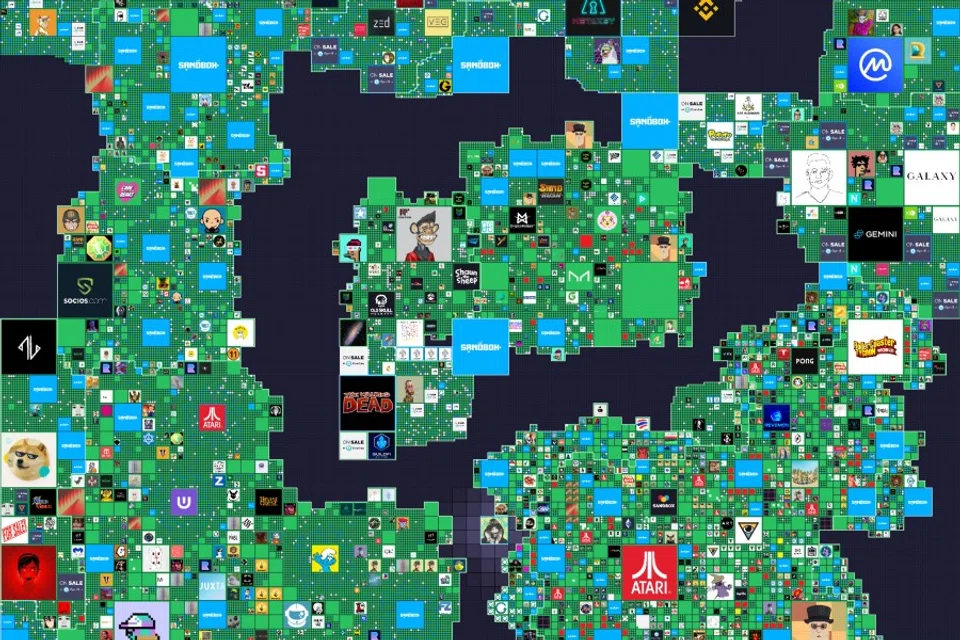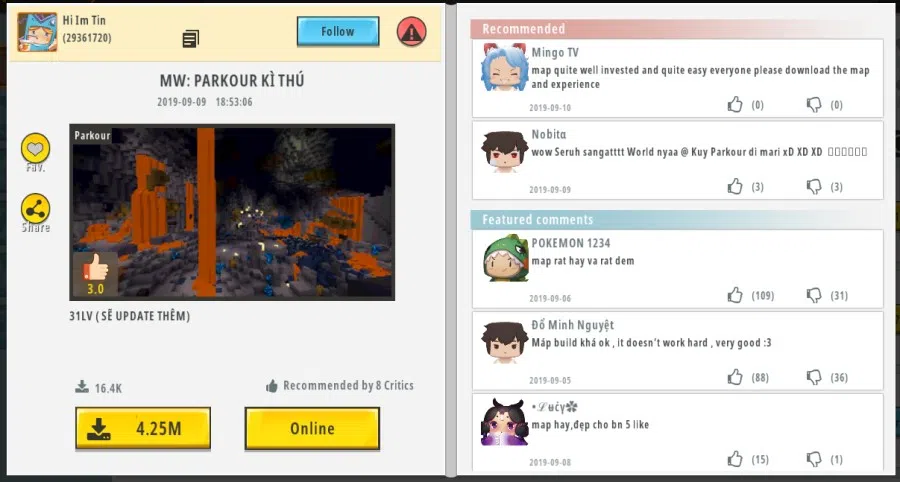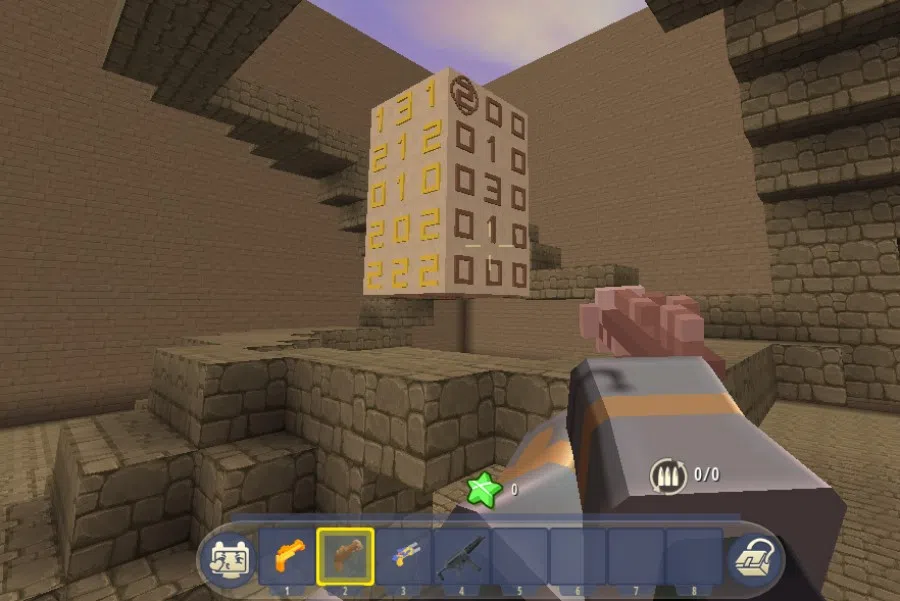If Chinese video producers and gamers can become metaverse creators
In this second article in a series on the metaverse, technology expert Yin Ruizhi says that video creation platforms like Douyin and Kuaishou, as well as sandbox games such as Mini World, might give an idea of how users can help create the virtual world in the metaverse if the financial and creative bar is lowered such that participating is as easy as 1, 2, 3.

In China now, some companies that lay claim to the concept of the metaverse are just capitalising on the hype to push up their share prices. There are also non-listed companies that leverage the idea of the metaverse to try and con people by issuing virtual currencies.
However, there are many legitimate companies that are engaging in useful experiments. The previous article in this series raised the clear premise that one company cannot build the metaverse; it would require massive user numbers to take part in building it. From this perspective, the pioneers in exploring the metaverse have to try and resolve the question of how to develop a massive, tiered community of games creators.
To understand the importance of this group to the metaverse, we can first look at the rise of video platforms and gain some insight from this revolution.
In mainland China, 10 to 15 million users upload their videos on Douyin and Kuaishou each day
Learning from the rise of video platforms
Video platforms like Douyin and Kuaishou are not themselves content producers. Their appeal lies in that users can watch a vast collection of videos of all sorts, and behind that success is the fact that tens of millions of people in China have to keep producing such videos.
In mainland China, 10 to 15 million users upload their videos on Douyin and Kuaishou each day, and these tens of millions of users may produce up to a million videos that are of a high professional standard; about 30,000 to 40,000 accounts produce clips to the standards of professional documentaries or movies. About 10% of these video creators have relatively high-calibre teams that have a regular income, while about 0.3 to 0.4% of these teams are highly professional teams that can absorb their own profits and losses. These numbers and distributions constitute the massive, tiered community of content creators.
Only if there are large enough numbers at the base of the framework can enough genres be covered, and good productions in each genre be naturally and efficiently selected through comparing data in the system, in order to satisfy users' preferences.
Having many high-calibre teams around means that even if users consume a lot of a certain type of video content, there are sufficient reserves of similar videos to satisfy demand. Teams at the top of the pyramid of the community of creators are in charge of producing stunning videos that go beyond users' expectations, in order to maintain the platform's charm and appeal.

Before Douyin and Kuaishou, in the era of PC video hosting services, many video websites in China such as Tudou burned through a lot of money before finally failing. One core reason was the very high bar for filming and producing videos at the time. One needed a professional camera to shoot videos, which was too costly for the average person - a camera could cost 5% of a residential property in a first-tier city in China, a household expenditure second only to a car. Also, producing a video required professionally trained people using professional editing tools.
But in the smartphone era, smartphones and video production apps have resolved the issue of lowering the bar for the masses to produce videos. High quality videos can be shot on smartphones, while most editing can be done quickly and conveniently on smartphone apps, so that the short video market is flourishing.
Harnessing consumer-generated content will be key
Tracing the rise of the video era, we can see one core issue that the metaverse era has to resolve: how to allow the masses to play a part in creating games within the metaverse at a low cost. If the high bar to games production remains limited to professional teams such as programmers, with good games produced only at high cost, then the metaverse is far distant.
The main idea of sandbox games is that players are able to modify, influence, or even create worlds through generic operations without having to learn programming

The pioneers in mainland China include Minovate, which made game creation easy enough for the average person - even a child. The most pragmatic experiment at the moment is sandbox type games, and from sandbox type games to sandbox games. Such standalone games consist of one or more maps or areas, and usually incorporate elements from various games, including role-playing, action, shooting, and driving.
The main idea of sandbox games is that players are able to modify, influence, or even create worlds through generic operations without having to learn programming, such as creating their own parkour course in the game that other players can experience. Creation is the name of such games - players use the items provided in the game to create something unique to themselves.
Minovate was established in 2015 with nearly 1,000 staff; it is not a rookie company that popped up just to capitalise on the metaverse craze, but a company that has a clear vision and both feet firmly on the ground as it moves forward on its mission to "spark imagination and create joy". It develops its own engines and sandbox content creation platform to build and explore online virtual interactive scenarios of the future. The company's Mini World (迷你世界) is the largest sandbox platform in China, with over 100 million active users.
And Mini World is to the metaverse what low-cost smartphones were to the pre-video era...
Mini World lowers the bar on game content creation by simplifying everything into blocks. Players manipulate blocks to create anything they want; in the game, users can tap on their imagination to build medieval castles or a futuristic building, or construct something nice they have seen in real life, or create a giant monster right out of their head. These items built out of blocks may lack realism, but with enough creativity, they can still have their appeal. The creative bar is low enough for children to grasp and use with skill. And Mini World is to the metaverse what low-cost smartphones were to the pre-video era, when smartphones just started to have filming functions and editing apps.

Mini World has won many well-known industry awards, including the Most Innovative Game Award on Google Play and the Best Indie Game at the Black Stone Awards, and it is winning over young people with its puzzles, openness, and creativity.
Currently, sandbox games are not as fun as mainstream AAA games (produced with high budgets and distributed by a mid-sized or major publisher). They will not even be the main content in the metaverse. However, such experiments are necessary on the path towards the metaverse.



![[Big read] When the Arctic opens, what happens to Singapore?](https://cassette.sphdigital.com.sg/image/thinkchina/da65edebca34645c711c55e83e9877109b3c53847ebb1305573974651df1d13a)

